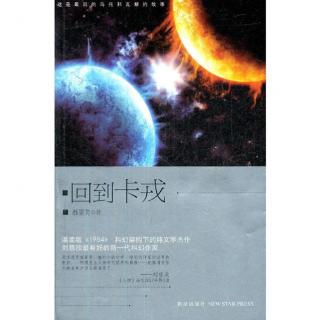
介绍:
Mars, the twin planet of our Mother Earth, has been the subject of boundless imagination and fanatical obsession in science fiction for more than a century.
In the eyes of Arthur C. Clarke, the Red Planet is a sandy world; as for Edgar Rice Burroughs, Mars is an abode populated with four-armed aliens, monsters and princesses.
But Chinese writer Hao Jingfang describes the planet like this:
"Viewed from the outside of the planet, Martian cities look like the Hanging Gardens of the ancient Babylon. Just like the dream of building the Tower of Babel, the ideal of the Hanging Gardens have been revived intensively on Mars. The whole city is a huge entity. Lines of buildings are banked and smooth, the rising terraces and porticos are connected with each other. Standing beneath the glass-made dome, you will find blooming flowers and lush grass everywhere."
A Tsinghua University graduate, Hao Jingfang has put pen to paper since 2007 and the majority of her works are fantasy stories. The multi-award winning writer says her affinity with science fiction comes from her majors: physics and astronomy.
"When the development of physics reaches its acme, we are going to discuss some philosophic problems. Particularly in terms of modern physics and quantum mechanics, the more you learn, the more malleable your worldview becomes."
In her latest novel, Back to Charon, or in Chinese "Hui Dao Ka Rong", the author sets the story in the year of 2190, when mankind have already overcome the barriers of gravity and atmosphere to master space travel and colonize Mars. Just like Kim Stanley Robinson's Mars trilogy, Hao Jingfang's Mars is a utopian society believing in sharing everything, while life on Earth is more carnival-like and chaotic.
"In this book, I just went to extremes. I transformed my trivial thoughts and subtle feelings to two extremely different worlds. One represents childhood, while another stands for adulthood. In real life, you cannot find such radical differences. But in this novel, I wanted to create that tension."
In 2150, the inhabitants of the Red Planet start a revolt to break off the yoke of earthly jurisdiction, eventually leading to the separation of the human species. However, instead of rendering the grand, brutal battles or interstellar secession, the writer focuses on several Martian teenagers, who live on Earth as transfer students for five years and then return to their home planet at the age of 18. The fates of those protagonists all get intertwined with the future of the two planets.
"At the beginning of this novel, a group of teenagers fly past a desert and overlook their distant homeland. Czech composer Antonin Dvorak once wrote a symphony named 'From the New World', which I think is a perfect match to that image. He used music to describe the feeling of Europeans when they came back home from America, and I choose words to depict those expatriate Martians. When you return from a new world, you will regard the old one differently. All your confusion and choice for life come from your comparison between these two worlds. "
Thanks to the meticulous scientific details and abundant sociological information in the book, the writer molds a vivid and plausible Mars. But "Back to Charon" is by no means a hard science fiction; instead, you will go through a lengthy tirade of history, system, freedom and humanity. In the end, there is no one who is capable of being the savior of the world and they all surrender and compromise to their own desires.
The author emphasizes that she has no intention to sermonize her readers or exhaust them with scientific theories.
"I don't want to persuade my readers to believe something. In fact, until the end of my novel, I always want them to see that all your convictions and all the ideals you want to fulfill are not perfect at all. Essentially, every belief has its own flaws; I used to be pretty pessimistic, regarding this matter."
Compared to many male sci-fi writers, whose works focus on technical accuracy and biting sarcasm, Hao Jingfang's writing style is more gentle and poetic. That's why "Back to Charon" gets applause from Liu Cixin, China's contemporary sci-fi guru, for its "unique touch of dignity and elegance of idealism".
大家还在听

